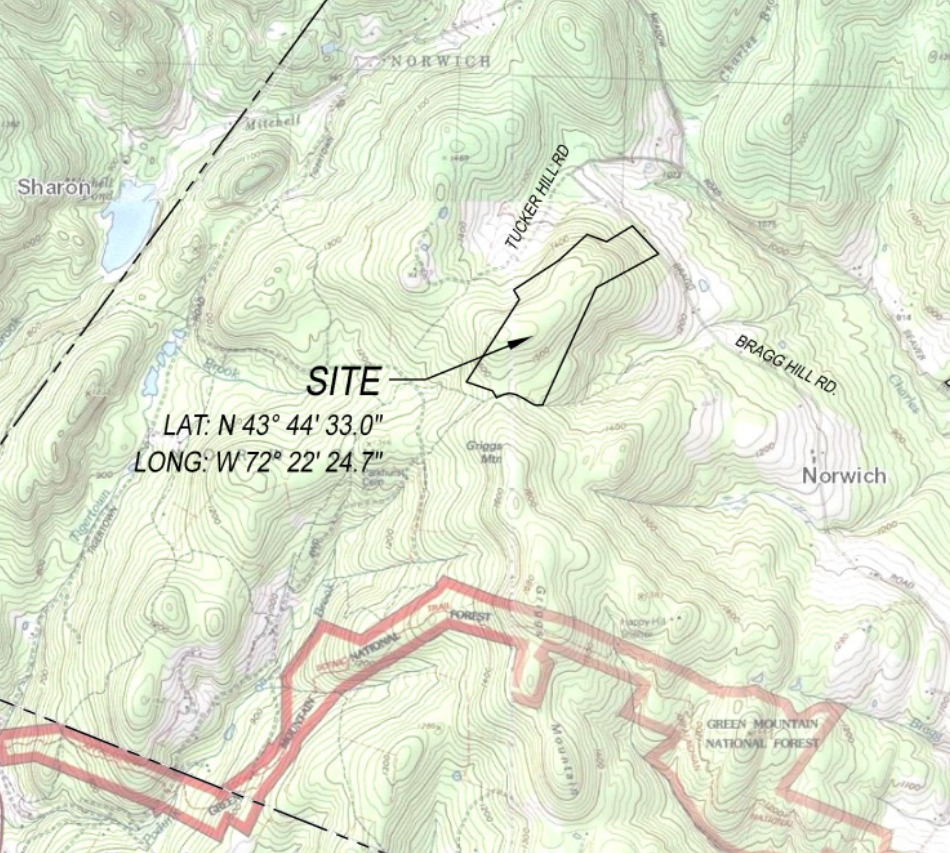
The Norwich Selectboard will not object before the PUC to a solar facility being built in a ridgeline protected area. That position won the day, notwithstanding the community values against such development articulated in the Town Plan. As noted in my original post, the property owner has made no effort to show that the solar facility will have no impact on views. “They haven’t done the work,” said Planning and Zoning Director Rod Francis at the Selectboard meeting.
Nevertheless, the Selectboard opted not to object, in part because two Selectboard members supported the project and in part because the Planning and Zoning Director gave erroneous advice to the Selectboard. That’s my take after reviewing the CATV video. The pertinent meeting discussion begins at about the 22 minute mark of the recording.
…
Selectboard member John Langhus supported the project because it was not a commercial venture to make money, but one for personal residential use. Board member Rob Gere appeared to agree. Mr. Gere responded “likewise” following Mr. Langhus statement that he was in “opposition” to the Town objecting.
My problem with the approach is that the project does in fact make money. It gets a discount on electric rates from GMP, subsidized by other ratepayers. Not as much as a preferred site, but a discount nevertheless.
More importantly, the Town Plan represents a statement of community values. Why go through the effort of creating a Town Plan, if the Selectboard won’t back it up?
This project is large by residential standards. At 3300 square feet, its footprint is larger than many homes in Norwich. Moreover, the project is more powerful at 29.4 kW, than the one Willing Hands is proposing for the roof of its new barn on Church Street at 22.8 kW.
…
Selectboard members Roger Arnold and Mary Layton were also against filing an objection. However, their view, to let the Norwich zoning process run its course, was based on erroneous advice from Planning Director Francis. He mistakenly told the Selectboard that the property owner needed a Norwich building permit to complete the solar project.
The Norwich zoning regulations require the property owner “to demonstrate that there is no visual impact,” said Director Francis at the Selectboard meeting. “They are going to have to go through the process of hiring a professional to do a visual impact analysis … or their application for [a Norwich zoning permit] will be denied.”
Unfortunately Mr. Francis erred. Getting approval from the PUC trumps any Town zoning regulations. He corrected himself in an email to the Selectboard the morning after the meeting. “If the PUC issues a [certificate of public good] for this project, it is exempt from local zoning,” he wrote in the email.
But, the next morning may have been too late. The next regular Selectboard meeting is scheduled after the October 5 deadline for filing objections with the PUC. Absent an emergency Selectboard meeting on Monday, October 5, the Town has given up its opportunity to object.
…
Only Selectboard Chair Brochu was adamant at the meeting about enforcing the Town Plan by filing an objection with the PUC. I don’t know if Mr. Arnold or Ms. Layton lobbied for an emergency Selectboard meeting after the Planning Director corrected his error.
The Town does not know if the project will have a visual impact on the public viewshed. But, we do know from the preliminary notice filed with the PUC that the project “hard to see from the driveway or house.” Swell. The property owner does not want to see it. But, the Selectboard does not care if the Norwich ridgeline is despoiled.
That seems like a Scandal.


Well done to flag this, Chris. Like Selectboard decisions to depart from the town plan and zoning for wireless facilities, affordable housing, and scenic resources, this again highlights how difficult it is to bridge the distance between planning and politics. Our state legislature also likes to change the rules for infrastructure goals like renewable energy and better cell coverage. Individual landowners who happen to live near these projects bear most the impact and are expected to accept it for the common good. No bad actors here, just a difficult story of how good intentions can have collateral damage and a caution that it’s never just about climate change or better broadband.
What is more disheartening? That the Zoning Director didn’t know the regulations/rules/law or that a member of the Selectboard who works in the Solar industry yet again doesn’t see a conflict of interest and pushes through a solar project without the appropriate steps being followed.
The SB Chair is outnumbered 4-1 again. How about an emergency re-vote and push for the site impact study?
I don’t see a conflict of interest just because a Board member works for a solar company, particularly one that does most of its business outside of Vermont and New Hampshire.